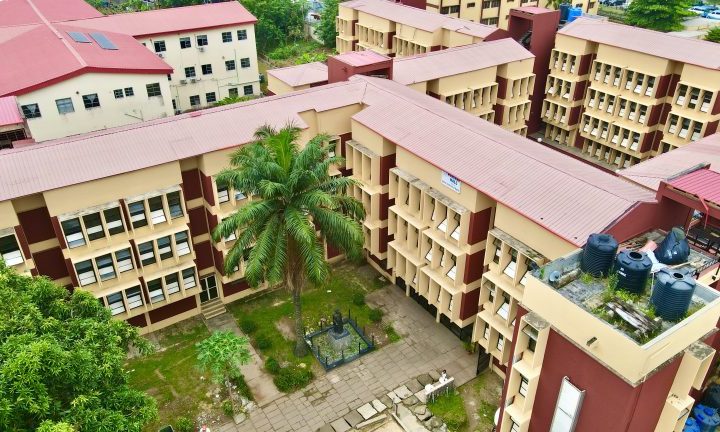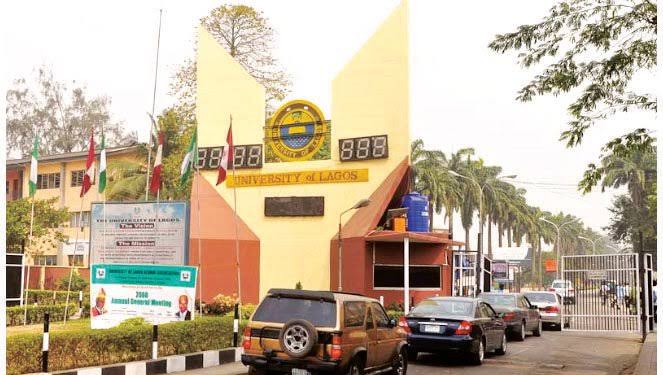
By Enyeh Julius Akpovire and Awonuga Oluwatoyin Shakirat

The popular African proverb “When two elephants fight, the grass suffers” could best describe the pathetic situation of Nigerian varsity students following the tumultuous marriage between the Federal Government and the Academic Staff Union of Universities (ASUU).
The never-ending battle between the government and ASUU, which has led to incessant strikes by the union, has become a nightmare for Nigerian students, who are the nation’s future leaders. The Oxford Dictionary describes a strike as a refusal to work organised by a body of employees as a form of protest, typically in an attempt to gain a concession or concessions from their employer.
Over the past years, the ASUU strike has been a major educational issue that public tertiary institutions face in Nigeria, especially the public varsities.
Quite interestingly, ASUU, founded in 1978 to replace the Nigerian Association of University Teachers, established in 1965, has embarked on 17 industrial actions covering a total of 51 months.
The most recent was a 4-week warning strike action declared by ASUU on February 14, 2022, which truncated academic activities in universities across Nigeria. According to ASUU President Prof. Emmanuel Osodeke, the recent action by the union was to press home its demands. The demands include the government’s failure to implement its 2009 agreement with the union, which included improved funding for the revitalization of public universities, earned academic allowances, visitation panels/release of white papers, non-payment of financial entitlements of academic staff, university autonomy and academic freedom, promotion arrears and the recently introduced Integrated Payroll and Personnel Information System (IPPIS), among others.
At the expiration of the period, ASUU extended its action for another eight weeks before declaring an indefinite strike on Monday, 9th May 2022, after it announced that the Federal Government failed to yield to its demands. The union, however, called off the strike on October 14, 2022, following an order by the Court of Appeal sitting in Abuja eight months later.
No doubt, the incessant strikes by ASUU have caused many parents and students to lose trust and interest in Nigeria’s educational system.
But the big question is, ‘Who is to be blamed?’The FG or ASUU?
Without mincing words, the Federal Government must recognize the importance of education in the growth and development of the country. A critical look at ASUU’s demands shows that the union meant well for the Nigerian educational system and students.
The union wants the public universities to be upgraded in terms of facilities to rival their peers in other parts of the world where the ruling class and wealthy individuals send their children to enjoy sound education. It is a statement of fact that Nigerian public universities are far behind other universities in Africa and the world at large due to underfunding. Some departments lack the adequate equipment to facilitate practical learning. For Nigerian public varsities to compete with other top tertiary institutions worldwide, the government must release enough financial resources to the schools.
ASUU wants better funding for the public universities, promotion arrears and others. The union also wants the welfare of its members to be up to date with modern realities to foster staff commitment and motivate its members for better delivery. The government must understand the role of lecturers in the nation’s economic development and make them comfortable. The government cannot continue to play politics with the development of the nation’s future leaders with failed promises.
For instance, the issue of the MOU reached between the Federal Government and the union in 2008, which was never implemented, is worrisome. Recall that after a series of strikes, which always ended with the FG giving assurances during the negotiations, ASUU went on one of its most protracted strikes in March 2020, just before the Coronavirus pandemic lockdown. The union eventually called off the strike in December 2021 after the unimplemented MOU was renamed Memorandum of Action, MOA. It is now almost two years since, and only a little has been done.
Yearly, billions of naira are stolen from the government treasury by some corrupt individuals whose children enjoy better education abroad. In contrast, middle-class children whose parents cannot afford foreign education suffer the brunt of their actions.
It’s so painful that the same Nigerian government officials who are crying that there is no money to meet ASUU’s demands are being probed daily by the Economic and Financial Crimes Commission (EFCC) for embezzling government funds. You will recall that a former Accountant-General of the Federation, Mr Ahmed Idris, was arrested in 2022 for stealing N109 billion to acquire private properties in Nigeria.
It’s time for the Federal Government to sit up and raise the bar in Nigerian public varsities if it truly believes in the prosperity and growth of the people. There is no doubt that education is vital to the development of any nation, and it should be given priority above everything else.
Those in government must realize that the Nigerian students bear the brunt of their disagreement with ASUU.
It should be noted that the constant disruptions of academic activities in the nation’s public universities generally come with serious negative impacts on the students and their parents, and this, in turn, is not healthy for the Nigerian educational system, aside from the fact that the development does not portray the country in good light before the international community. The trend has also consistently weakened the fulfilment of the country’s youths’ hopes, aspirations, and dreams. Others include an unstable academic calendar that gives students undeserved extensions in their study years. A student who ought to graduate in four years would have to spend extra years because of the strike. This makes students lose faith in the country’s educational system.
Needless to say, the mind of the student becomes idle, and as the saying goes, “an idle mind is the devil’s workshop.” When students are idle and forced to remain at home by strike, they can be tempted to engage in criminal activities and social vices such as cybercrime, kidnapping, armed robbery and the like.
Miss. Chiwendu Enagalam, a year three student of Mass Communication at the University of Lagos (UNILAG), had this to say about the worrisome development: “I have lost so many sessions to strike. It’s really sad and a big shame to the Nigerian government. The incessant strike has shattered my plans, but what can I do?”
Speaking on the effects of the incessant strike, Mr. Samuel Adeleke, a parent whose daughter attends the University of Lagos (UNILAG), lamented that “Every throw of a spanner in the wheel of progress of any system always produces accident. The educational system is not an exception. Time is of vital essence in life. The best time bracket in our youths’ lives is being wasted whenever ASUU is on strike. My daughter is now 27 years old and in 200-level; if not for the strike, by 26, she ought to have been done and preparing for the next stage of her life but the strike has scattered such plans.”
On its part, ASUU should always be ready to dialogue with the government, find common ground to press its demands and show some sense of understanding in some areas. ASUU must remember that Rome is not built in a day. Hence, the union should be lenient in its struggles at times.
Also, the government should not use the court as an escape route; rather, it should create a strong forum where both parties can meet regularly and deliberate on educational system issues instead of ignoring the union and waiting until it embarks on strike.
ASUU’s demands should be considered and treated with the seriousness they demand. At the same time, both parties should be committed to finding common ground on the issues, and the government should always try to honour whatever agreement is reached with the union to avoid these problems.
Dear Nigerian government, the students are the nation’s future leaders. Wake up and raise the bar!





More Stories
Mass Comm First Class Graduates: How Single Steps led to Triumph
Smart money moves: Exploring Side Hustles For Students Seeking Passive Income
The ABC of being NYSC Ready